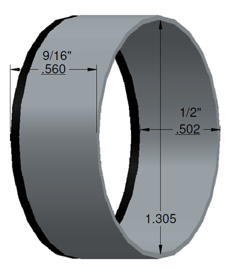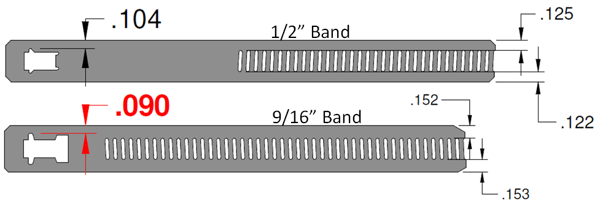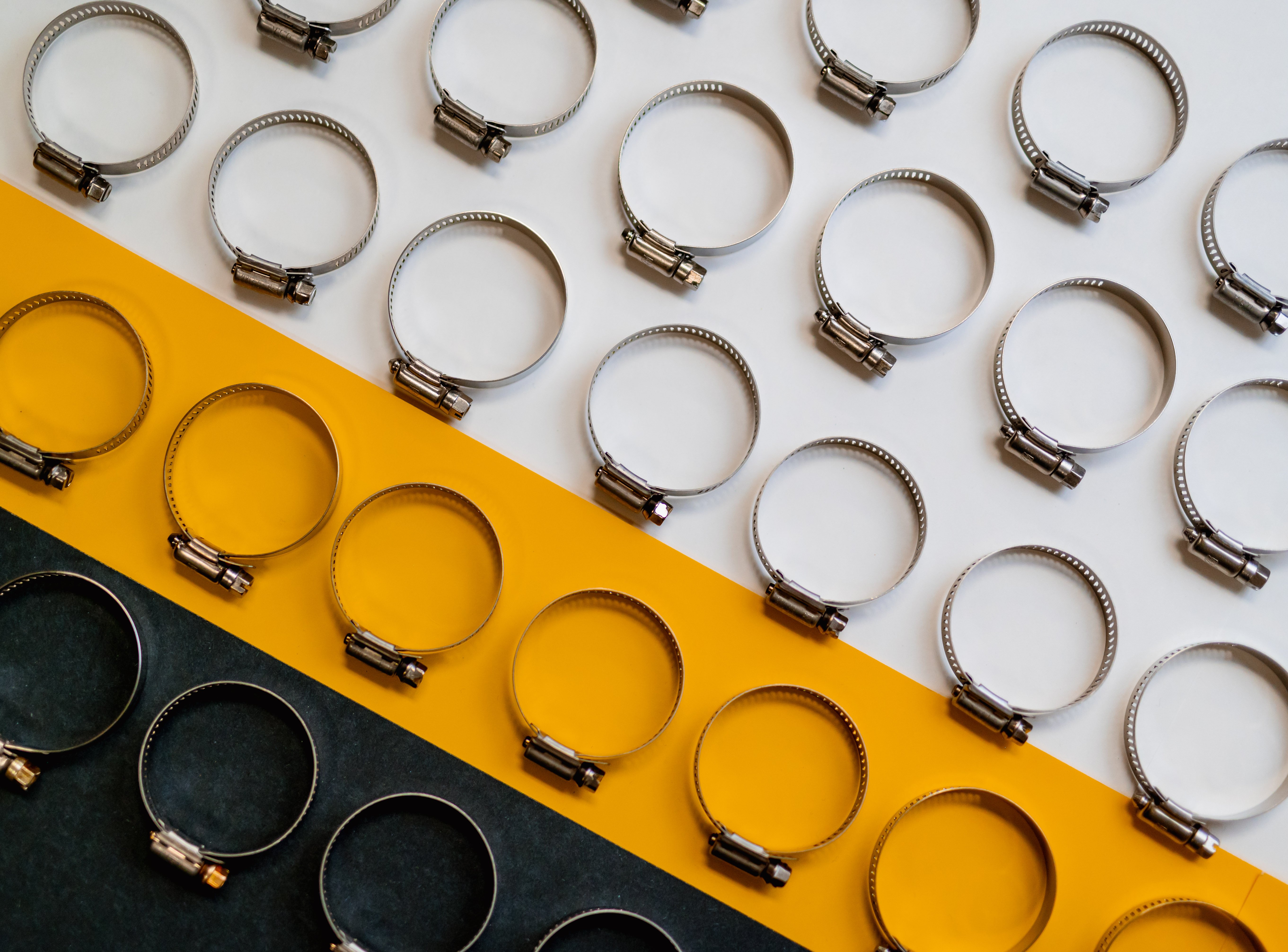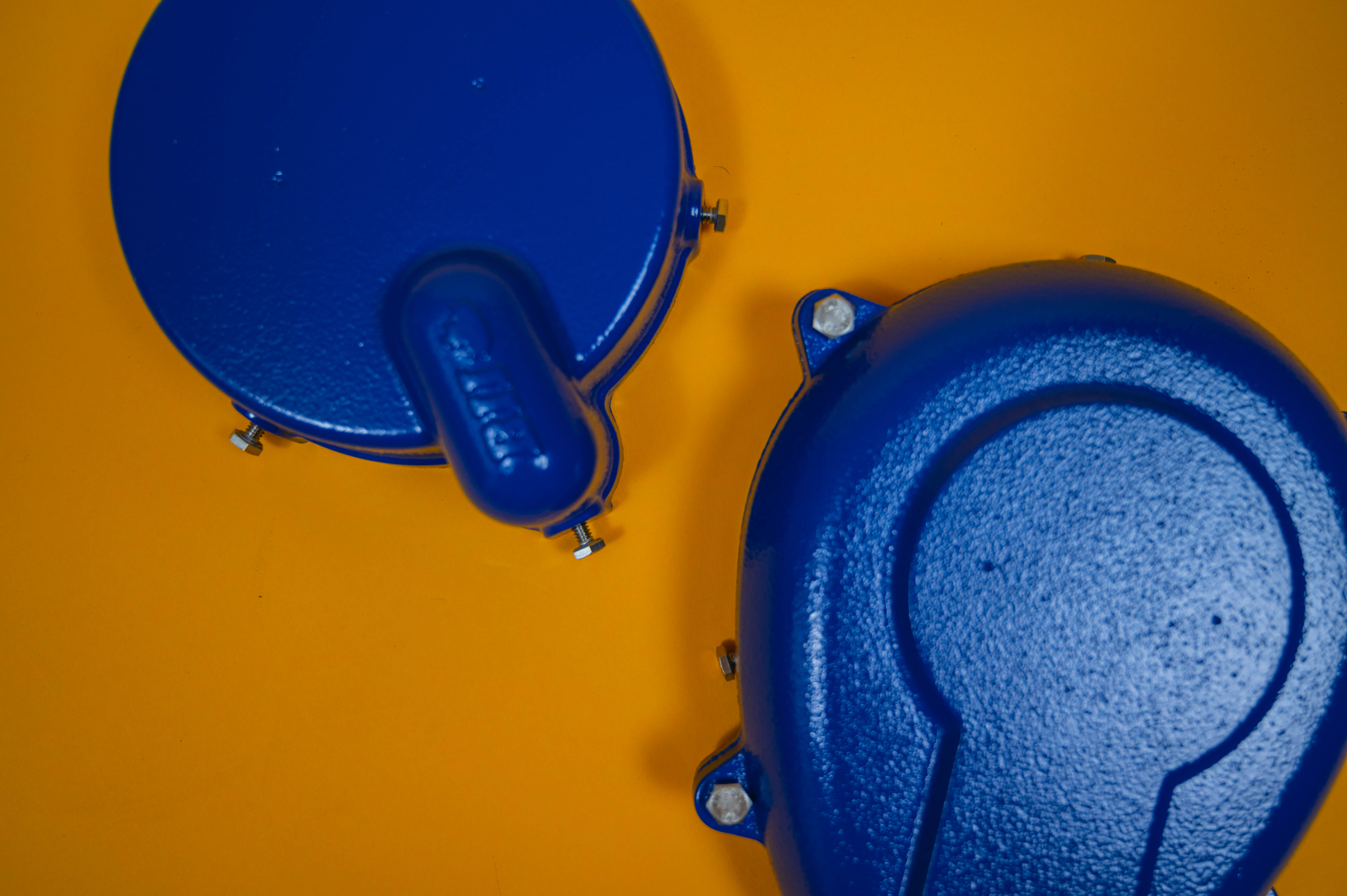Gear Clamps seem like such a simple product, and they really are. Even still, they play an important role in many Plumbing, Water Well, Irrigation and other applications.
To see our in-depth Webinar, The Pro’s Guide to Gear Clamps, Click Here
There are some myths that have circulated around the Plumbing and Water Well industry about Gear Clamps that we disagree with.
In this blog, we are going to look at the 3 common myths and give some context to why we disagree with them. The three myths we are going to talk about are:
- Stainless Steel Magnetism
- A 9/16” band has more sealing force than a 1/2” band
- A 9/16” band is stronger than a 1/2” band
Gear Clamp Stainless Steel Magnetism
We wrote a blog addressing stainless steel magnetism a while back, but I wanted to highlight it again pertaining to Gear Clamps.
The myth is that if Stainless Steel is magnetic, that they must be poor quality. Many people have held this as a way to test product quality. In reality, this test has no bearing on the quality to Gear Clamps, or any stainless products for that matter.
Here’s why.
The place where this myth came from stainless steel in certain forms (Prior to being worked) are non-magnetic. Therefore, people assumed that if it has magnetic properties, it must be something else. The reason why some stainless product, such as Gear Clamps, can become magnetic is due to the manufacturing process.
When Stainless is worked to create product, it can cause magnetism to emerge. This is not always the case, but this is the reason why stainless is sometimes magnetic. The only way to truly tell what quality your Gear Clamps are made of is by using an Alloy Analyzer. This will tell us exactly what chemical make up is in the Stainless material.
So, don’t ever use this test for seeing the quality of Gear Clamps, or any other Stainless Steel products. This myth has fooled many people over the years. Don’t let yourself be one of them.
A 9/16” Gear Clamp has more sealing force than a 1/2” Clamp
 This myth came from a certain Gear Clamp company that will remain unnamed. They proposed that a 9/16” Gear Clamp has more sealing force and therefore should be used in applications that require more force.
This myth came from a certain Gear Clamp company that will remain unnamed. They proposed that a 9/16” Gear Clamp has more sealing force and therefore should be used in applications that require more force.
Yes, a 9/16” band is bigger, but it does not have more sealing force than a 1/2” band. The reason for this is because the same amount of force is being applied on a more concentrated area, which leads to more actual pressure.
In our testing, there is 11.45% more pressure being applied on the 1/2” Gear Clamp vs. the 9/16” clamp.
Here is the math to support:
Sealing area of 9/16” band: 0.560” X 1.305” = 0.73 In2
Sealing area of 1/2” band: 0.502” X 1.305” = 0.655 In2
Assuming 60 Inch Lbs. of screw torque.
60 Inch lbs / 0.73 In2 = 82.19 lbs/In2 (9/16" Clamp)
60 Inch lbs / 0.655 In2 = 91.60 lbs/In2 (1/2" Clamp)
Result: 1/2” bands apply 11.45% more sealing force than a 9/16” band.
So, if you want more sealing force for tougher applications, using a 1/2” Gear Clamp is the way to go, not a 9/16” one.
A 9/16” Gear Clamp is stronger than a 1/2” Clamp
This myth is an easy one to get caught up in. Logically you would think that if a band is wider, it should be stronger. The thing that people don't pay attention to is that a Gear Clamp will always break at its thinnest point.
The example below illustrates this. As you can see, even though the 1/2" band is not as wide, the thinnest point on the band is thicker. In our testing, Gear Clamps will always break in this area.

When we tested the tensile strength of these two sizes, on average the 9/16" Clamp broke at 991 lbs and the 1/2" Gear Clamp broke at 1446 lbs.
Our testing shows that a 1/2" band can withstand an average of 46% more tensile force than a 9/16" clamp.
This test was performed with a specific 9/16" Gear Clamp, so others may have different results depending on how much material is at the thinnest point. This all comes down to design.
Now that you know why these myths are not true, make sure you ask better questions of the people you purchase Gear Clamps from. This will ensure you are getting the best product for your application.
Have further questions about this subject?

Head over to Boshart's Knowledge Base: technical product information, guidelines, and more.




.png)
SHARE